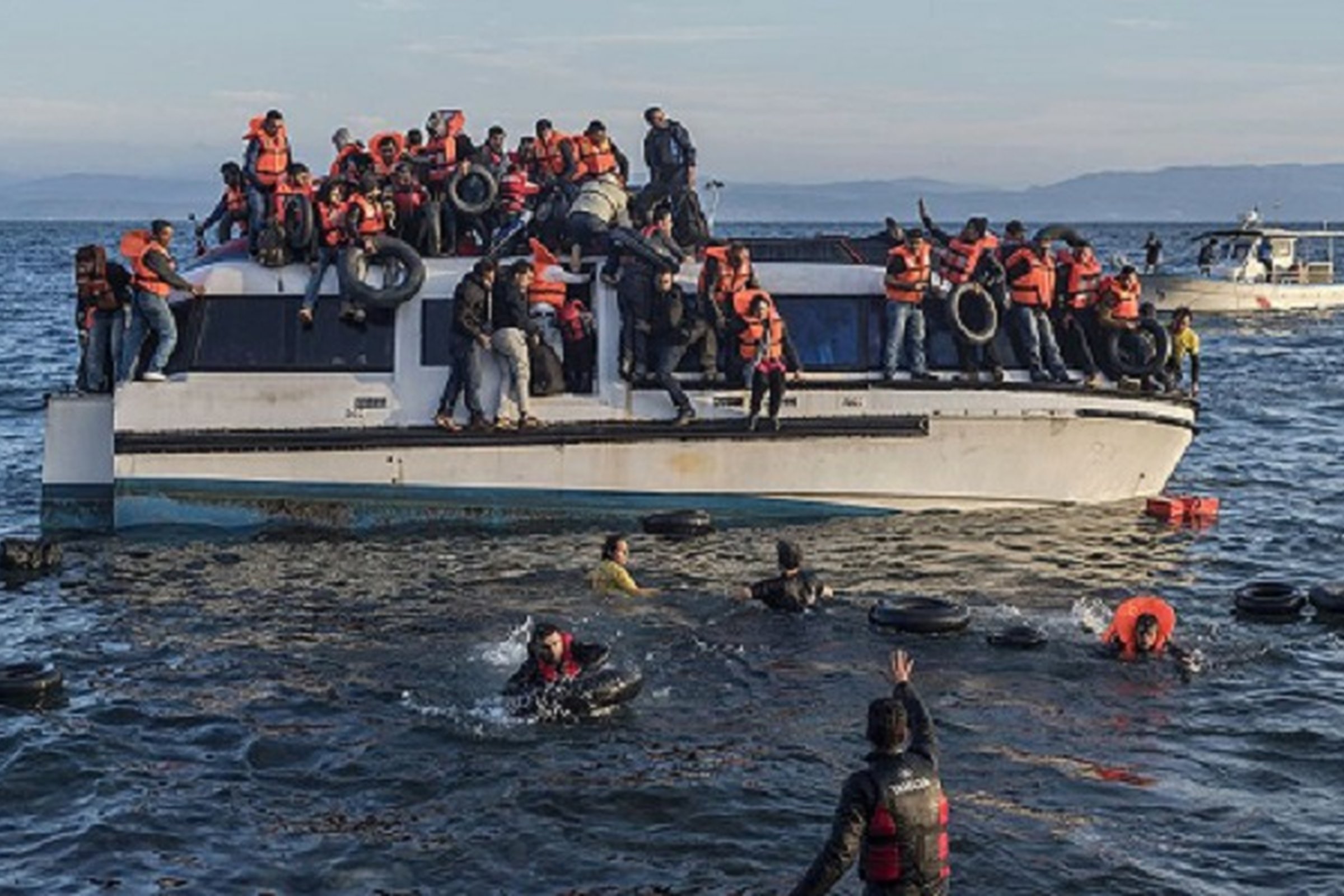Editor’s Note: We posted this video back in October, but without any commentary. Here, we get some commentary and transcription, so thought it worthwhile to go over it again.
More than one of my liberal acquaintances or family members has stated that there is no such thing as “American Culture.” Their premise seems to be that “American” is some sort of composite made up of so many different cultures so that we are not actually our own culture. I say, we most certainly have regional culture in America.
Trying to lump us all into one mold of “American Culture” becomes quite difficult. Hockey is a sport that I have no frame of reference for… having grown up in a former Confederate State, ice simply was not in enough supply for me to participate in these kinds of reindeer games. “Gigging for Frogs” is something that, well, if you don’t know what that is, you are not from my part of America and we will leave it at that.
In the interview from October 7, 2019 with Douglas Murray, Peter Robinson of the Hoover Institute discusses the ideas in the books The Strange Death of Europe and The Madness of Crowds by Murray.
The interview opens with a discussion of the first book from 2017, The Strange Death of Europe.
Peter Robinson: John Cleese tweeted, as we tape this, I think it was last week, John Cleese of Monty Python fame, tweeted, London no longer seems to be an English city, if I’m–
Douglas Murray: Yes.
Peter Robinson: I think that’s a close paraphrase, if not a quotation. And he was attacked, well, the attack, as attacks are on Twitter. But he was correct.
Douglas Murray: He was correct. And by the way– Factually correct.
What he said is effectively what is boasted about by politicians, including the mayor of London and the previous mayor of London. They say it’s an international city. They’re very happy about that. But if somebody says, well, that means it’s not an English city anymore, then they attack somebody like, whether it’s John Cleese, me, or whoever, for heresy. I mean, it’s very interesting, by the way, isn’t it? I mean, John Cleese was attacked for the heresy of Life of Bryan, what, 40 years ago? He’s attacked by the clerics now, it’s just they’re the clerics of the far left and the social justice movements and so on. They just happen not to wear frocks like his previous critics. But it’s the same phenomenon. I’ve debated and discussed these issues for years now, and I know every one of the moves that people do, the number of dishonest moves, things like, that’s not the case. Okay, that is the case. That is the case, but you shouldn’t say it, or that is the case, and it’s great, suck it up.
Peter Robinson: Right, so to continue with the basic argument, this has come about, this death of Europe, or the death, this has come about, quote, because of two simultaneous concatenations from which it is now all but impossible to recover. The first is the mass movement of peoples into Europe, close quote, so explain that. Explain 2015 and tell us what that was, what happened in 2015, remind us, and that was a speeded up version of what? Again, you’re talking to a largely American audience here, so fill us in.
Douglas Murray: In the aftermath of the Second World War, most Western European countries decided that they wanted to invite migrant labor in to help rebuild. At the beginning, the idea was that they wouldn’t stay, they would come, and then they’d go home after doing the job. Unsurprisingly, they did stay, at least large proportions of them did, and gradually, people started to be brought in even if there weren’t jobs for them to go to. So, for instance, you imported large numbers of people from the Indian subcontinent to mill towns in the north of England when there were no mills anymore. And then–
(emphasis mine.)
When all of this was happening, there was an idea of what it meant to be British, or Scottish or Irish. The people brought here were expected to assimilate to how the Europeans of various stripes behaved culturally, or go back to where they came from.
Peter Robinson: All right, second concatenation, again, I’m quoting you, Douglas. At the same time that we’ve had this influx, at the same time, Europe has lost faith in its beliefs, traditions, and legitimacy. Europe is now deeply weighed down with guilt for the past, and there is also the problem of an existential tiredness and a feeling that perhaps for Europe, the story has run out and a new story must be allowed to begin. Okay, take us through that a little. Now, the German war guilt, that’s clear. Britain seems to me to be a gift. So again, I’m speaking as an American, what was the Churchill movie that was just a big hit last year? We think of Britain–
Douglas Murray: Yeah, Darkest Hour, yeah.
Peter Robinson: Britain has no apologies to make, no reason to feel guilty. Niall Ferguson, other people who have looked at the British colonies, on balance, it’s a transfer of human capital. They’re not impoverishing the people of India, and it’s on the contrary—
Douglas Murray: Much wealth.
Peter Robinson: Right, and so why would you include Britain? Britain’s the hard case to understand why Britain should feel guilty or an existential fatigue.
Douglas Murray: There’s several things. One is, the phenomenon, if you or I were to sum up all people across, say, Asia, as having responsibility for the same thing, people would say–
Madness.
That’s mad. You’re not even picking out the important distinctions. You’re being very generalizing. But you can do that with Europe. So, you can say, we did the Holocaust in Europe. You can even get away with that in London. Sorry, sorry, we? And then you take the other one, post-colonialism, which you refer to. Post-colonialism, and post-colonial guilt is suffered in almost equal measure by, for instance, Britain, which undoubtedly ran quite a lot of the world in the past, and Sweden, which did not. So, there’s a strange thing that has emerged, which I try to explain in the book, where we end up summing up ourselves by our collectively worst moments. The flip side of that is, we look at everyone else only by their best. So, in recent years, for instance, we’ve heard an awful lot, certainly since 9-11, about the Islamic neo- Platonists. No one talked very much about the Islamic neo-Platonists until this last 20 years. But the Islamic world is best represented by the Islamic neo-Platonists, whereas Europe is best represented by Auschwitz. Well, here you get to one of the problems of this, is that we are–
Peter Robinson: That’s just uninformed.
Douglas Murray: Yeah, of course it’s uninformed. All of it’s uninformed, and it’s also imbibed by vast swathes of the public, and told to them by a huge amount of academics, the media, politicians, and others. I mean, there’s several reasons for that, isn’t there? I mean, one is that you can do that almost cost free, as a modern politician, can’t you? It’s like the endless apologies for historical acts. It can gain you something, but it costs you nothing. All you’re doing is selling out and misrepresenting the past but you yourself might be able to polish a bit of your halo or burnish your reputation in some way. But this is just one element of this. This thing I describe as the sense of story running out, a couple of people have said, and I’m very glad they’ve pointed this out, that in some ways, it’s the most reasonable part of the argument in my book. The immigration bit is important, and people should know about it, but this second bit, the us bit, what is it about us that would mean this all happened? Not many people have, I think, written about. Now, by the way, I’m very disturbed about this, because almost none of my critics, and there are some, sadly, but almost none of them pick up on this thing. Almost none of them, they go for me over the immigration, but they never pick up on this. I have not, to date, had one critic who said, you’re wrong on the existential tiredness. You’re wrong on that. Our best days are all ahead of us, any of that. I don’t get any of that. And that’s a disappointment, because I was rather hoping I would.
(emphasis mine.)
So, as we see the rise of Nationalism, we see the very academics, politicians and media figures complaining that we are looking to our best histories. We are calling out our differences and celebrating them for the accomplishments that they are. You see, if Diversity was truly our Strength, there would be no problem with pointing out that Americans, British and Russians freed the captives of Auschwitz. But no. No we can’t point that out, because that represents the best of European History.
One takeaway from the book, The Madness of Crowds, was, “The single factor that has most clearly helped to change public opinion about homosexuality in the West has been the decision that homosexuality is in fact a ‘hardware’ rather than a ‘software’ issue.”
From this Murray goes on to explain:
Douglas Murray: So, for instance, gay rights, and which, I’m gay myself, supporter of gay rights, I think it’s all good, but it’s a great product of liberal rights, it’s a hideous foundation for them. Same thing with, for instance, women’s rights. Great supporter of women’s rights, very glad it’s happened, glad we’re here rather than 100 years ago. But can it be the basis of a moral system or an ethical system? One of the reasons why I think we’ve been becoming deranged on this is precisely as you mentioned this hardware, software thing. The problem is something like this. One of the few things we can all agree on is that we shouldn’t be mean to people because of something they can’t help. It’s one of the reasons why we dislike it when, for instance, somebody’s rude about somebody who’s disabled or taunts them about it. It’s a horrible thing to do. Now, things that people can possibly affect we’re iffy on. There’s a question. Doesn’t mean that we should be rude or unpleasant or anything else, but there’s a, you’re in different terrain. So most rights movements have moved towards this thing of born this way, the Lady Gaga view, as I say. Born this way–
Peter Robinson: Born this way means not my fault.
Douglas Murray: Not my fault. Crucially, a counter to lifestyle choice, and I think that lifestyle choice is something worth countering, in this occasion. But born this way says, nothing I can do about it, so be nice. And this has been adopted recently by the trans movement, which says, we are born trans. From childhood we’re trans, so be nice. Now, I explain why this has happened with trans, it’s fascinating, I think. But at the same time, we are making things that are undoubtedly hardware issues, gender, sex, into software. So, things we know are fixed–
Peter Robinson: Software meaning malleable, things that can be changed–
Douglas Murray: Malleable, can be changed.
(emphasis mine.)
Now, I don’t want to reprint the entire transcript here, but I found this discussion of the books to be compelling enough that I ordered both books to read.










Thanks for the transcript.